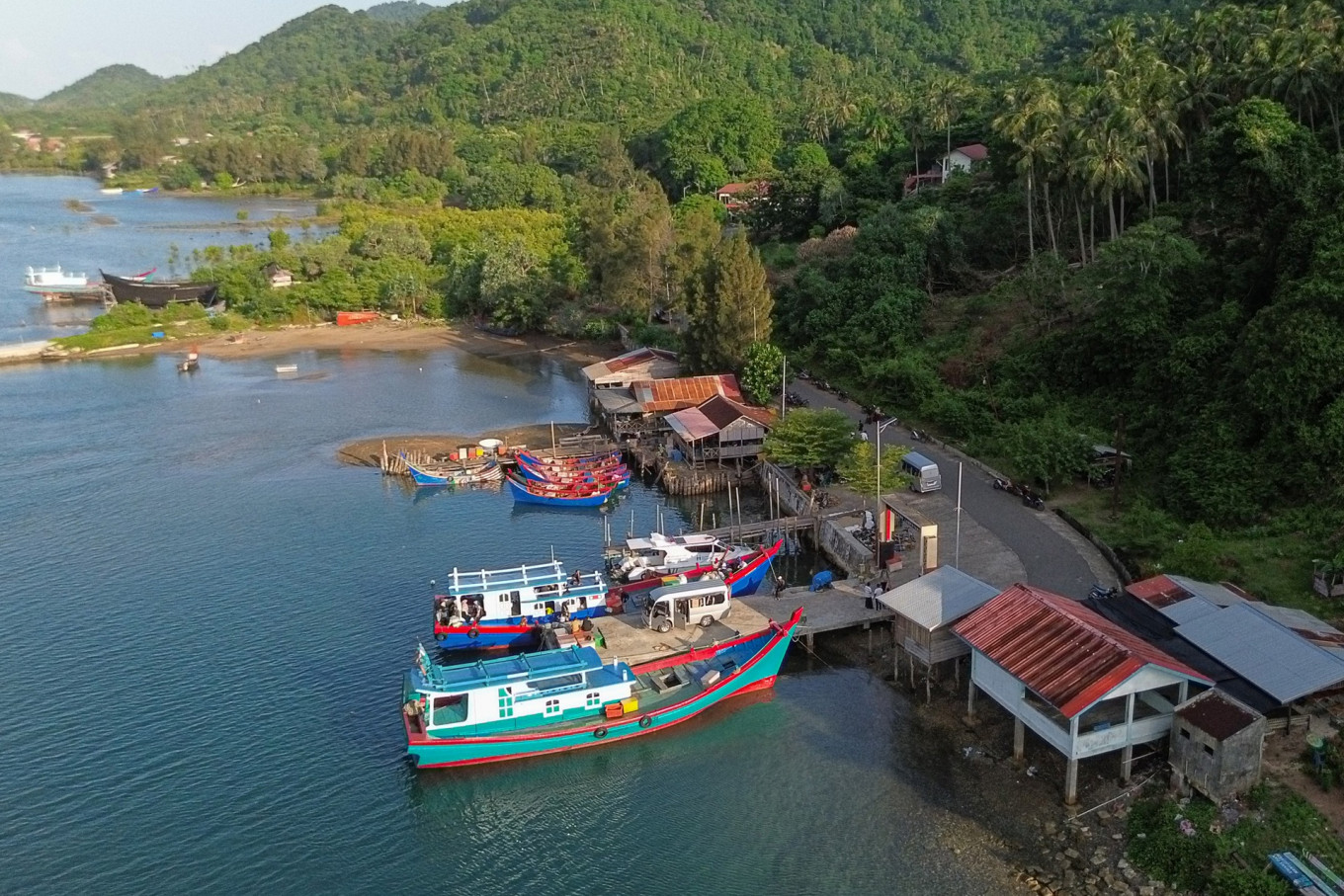Popular Reads
Top Results
Can't find what you're looking for?
View all search resultsPopular Reads
Top Results
Can't find what you're looking for?
View all search resultsSmall islands, big issue
The illegal sale of small islands is not always a matter of regulatory loopholes, but rather the result of a lack of awareness or even outright ignorance among locals as well as the government.
Change text size
Gift Premium Articles
to Anyone
N
ews has recently resurfaced about Indonesian islands being sold or offered by foreign entities, despite clear regulations prohibiting the sale of land, including islands, to foreigners. This isn't a new issue; these incidents reoccur every few years, even though existing laws only permit investors to manage islands, not to buy them outright.
A notable example is the Canada-based firm Private Islands Inc. Its website, privateislandsonline.com, is reportedly offering at least two plots of land on Sumba Island in East Nusa Tenggara (NTT) and one on Seliu Island in Belitung Regency, Bangka Belitung Islands. Previously, the site also featured other islets in Riau Islands and NTT, with no public seller information.
The sale of these islets has significant consequences for local islanders, who often complain that their livelihoods are disrupted. Once an island is sold to outsiders, locals lose access, even for basic needs like docking their small boats during storms. This also strips them of the ability to cultivate resources on their ancestral or customary lands.
Indonesian regulations are quite specific about island management. Investors can only manage a maximum of 70 percent of an island's total area, with at least 30 percent reserved for the state. Furthermore, within their managed land, investors must designate 30 percent as green open space to protect the fragile ecosystem.
Despite these regulations, they are frequently violated to attract quick money through extractive investments. A prime example is nickel mining on Gag Island in Southwest Papua, which has a land area of only 77 square kilometers. According to the law, this activity is prohibited on islands smaller than 100 sq km, making the mining on Gag Island an example of blatant disregard for environmental protection.
Sometimes, the illegal sale of small islands is not a matter of regulatory loopholes but rather the result of a lack of awareness or even outright ignorance among locals who hold titles or rights to these lands. Islanders, accustomed to serene, pristine conditions, may not realize the potential their islands hold if managed properly.
However, economic considerations often force locals to sell what they perceive as idle assets with little to no economic value. They might rationalize that selling an "abandoned" island is better, using the money for other businesses, or perhaps out of frustration due to their welfare being lower than those living on main islands.
Regional administrations bear the crucial responsibility of raising community awareness and prosperity. This involves disseminating information about land and island regulations and ensuring development programs reach far-flung islands. It's ironic that Indonesia, as the initiator of the Archipelagic and Island States (AIS) forum, sometimes appears to neglect its own islands.
The Maritime Affairs and Fisheries Ministry is tasked with overseeing and enforcing regulations in coastal areas and small islands. However, the ministry operates with limited resources, making active participation from all levels of regional administration, ranging from provincial to village, mandatory. Village heads, as well-informed locals, play a vital role as witnesses in land transactions, with these agreements recorded in village registries.
Outer islands are somewhat more fortunate, as the Indonesian Navy and the Maritime Security Agency (Bakamla) closely monitor them due to their role in delineating national borders. These agencies deploy patrol vessels and sometimes build coastal stations to safeguard these strategic islands, despite their own asset limitations.
In contrast, islands within the Nusantara Waters are often neglected, highlighting the need for better coordination among stakeholders for supervision and enforcement. Again, the role of regional administration is paramount, and the ministry should consider strengthening coordination or even delegating some responsibilities to secure the vast archipelago.
We are not opposed to investors in our small islands. Our only requirement is that they respect the law and Indonesia's sovereignty, and that they prioritize the welfare of the islanders and environmental sustainability.











